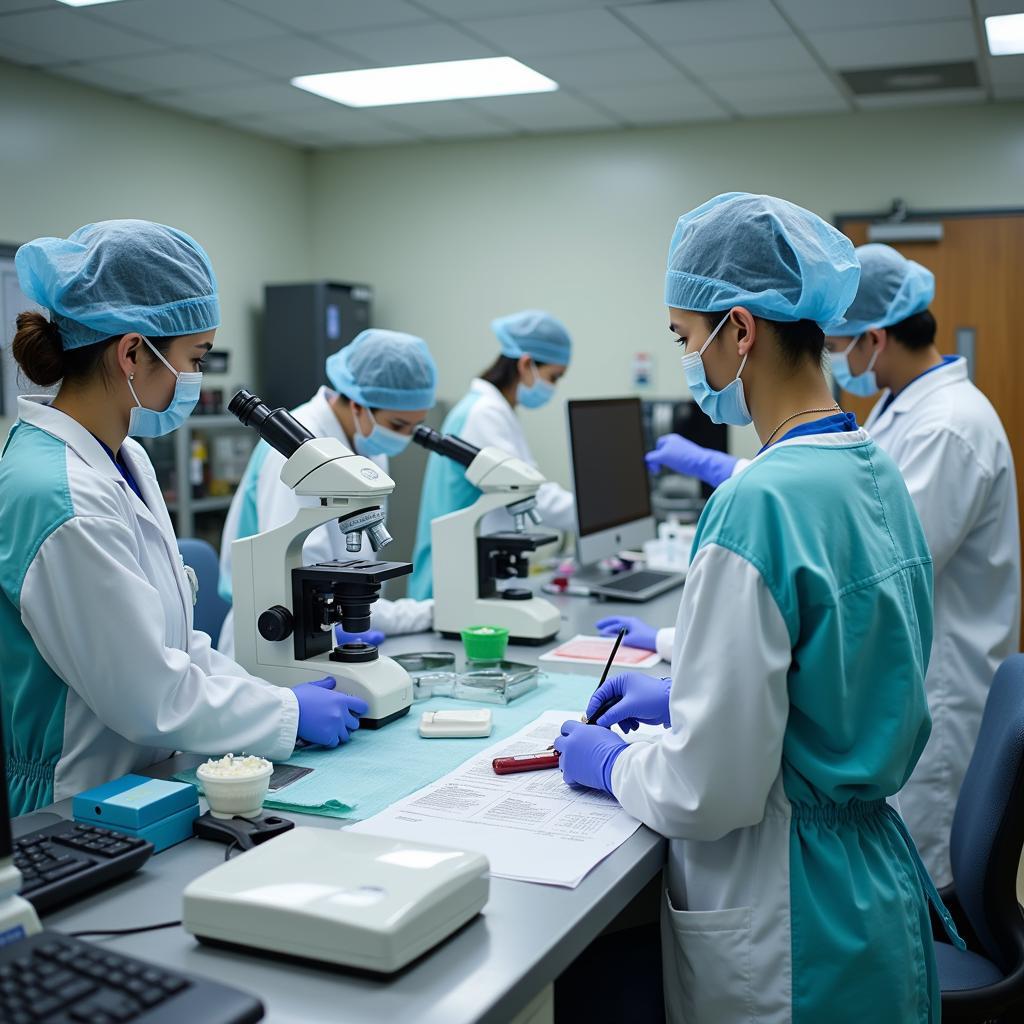Mission Hospital Labs are essential components of healthcare systems, particularly in regions with limited access to specialized medical services. These labs play a vital role in diagnosing and monitoring a wide range of health conditions, directly impacting patient care and treatment decisions. Unlike standard medical labs, mission hospital labs often operate with limited resources and staff, requiring innovative approaches and a dedicated team to overcome challenges and deliver accurate, timely results.
Bridging the Gap: How Mission Hospital Labs Extend Healthcare Access
Mission hospital labs bridge a critical gap in healthcare by providing essential diagnostic services to underserved communities.
- Early Detection and Diagnosis: Prompt and accurate diagnosis is crucial for effective treatment. Mission hospital labs facilitate this by offering a wide range of tests, enabling healthcare providers to identify diseases in their early stages, often before symptoms even appear.
- Monitoring Treatment Effectiveness: For patients undergoing treatment for chronic conditions, mission hospital labs play a crucial role in monitoring their progress and ensuring the effectiveness of their treatment plans. Regular tests help healthcare providers make necessary adjustments to optimize patient outcomes.
- Supporting Public Health Initiatives: Mission hospital labs are often involved in broader public health efforts, such as disease surveillance and outbreak investigations. By providing data on prevalent health issues, these labs contribute to developing targeted interventions and improving community health outcomes.
 Mission hospital lab technicians performing various medical tests
Mission hospital lab technicians performing various medical tests
Overcoming Challenges: Resourcefulness and Innovation in Mission Hospital Labs
Operating a mission hospital lab presents unique challenges, primarily due to limited resources and funding. However, these labs demonstrate remarkable resourcefulness and innovation to overcome these obstacles and deliver high-quality services.
- Adapting to Limited Resources: Mission hospital labs often work with limited equipment, supplies, and staffing. They prioritize essential tests and implement creative solutions to maximize resource utilization without compromising accuracy.
- Training and Empowering Local Staff: Sustainability is key. Mission hospital labs focus on training and empowering local staff, equipping them with the skills and knowledge to manage and maintain the lab independently.
- Leveraging Technology: Technology plays a crucial role in enhancing efficiency and expanding testing capabilities. Many mission hospital labs leverage portable and point-of-care diagnostic devices to provide rapid results and reach remote communities.
The Impact: Transforming Lives Through Accurate and Accessible Diagnostics
The impact of mission hospital labs extends far beyond laboratory results. They are transforming lives by empowering healthcare providers with the information they need to make informed decisions and provide appropriate care.
- Improved Patient Outcomes: Timely and accurate diagnoses lead to earlier interventions, improving the chances of successful treatment and recovery.
- Empowered Communities: Access to quality healthcare services empowers individuals to take control of their health and well-being, contributing to healthier and more resilient communities.
The Future of Mission Hospital Labs: Embracing Collaboration and Sustainability
As mission hospital labs continue to evolve, embracing collaboration and sustainability will be crucial for their long-term success.
- Strengthening Partnerships: Collaborations with other healthcare organizations, research institutions, and technology providers can provide access to specialized expertise, equipment, and funding opportunities.
- Building Local Capacity: Investing in training and professional development for local lab staff ensures the continuity of essential diagnostic services.
Mission hospital labs are not merely diagnostic centers; they are beacons of hope, providing essential healthcare services to those who need them most. By bridging the gap in access to quality diagnostics, these labs are playing a vital role in improving health outcomes and transforming lives.